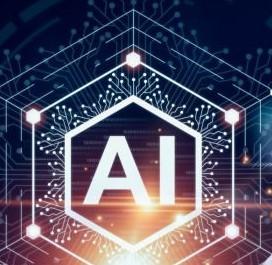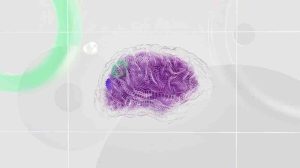
Part 1: Super Smart Machines? Exploring Artificial Intelligence (AI)
Imagine machines that can learn, solve problems, and even make decisions! That’s the idea behind Artificial Intelligence (AI). AI uses computers to mimic how the human brain works, allowing them to tackle tasks like playing chess, recognizing faces, and even writing stories!
Why is AI so exciting?
AI has the potential to do amazing things:
- Helping Us in Everyday Life: AI can power helpful tools like virtual assistants, self-driving cars, and medical diagnosis aids.
- Scientific Discoveries: AI can analyze massive amounts of data to help scientists make groundbreaking discoveries in medicine, astronomy, and other fields.
- Making Jobs Easier: AI can automate repetitive tasks, freeing humans to focus on more creative or strategic work.
But wait, there’s more!
Some people worry about AI:
Losing Our Jobs: As AI gets smarter, will it take away jobs from people?
Privacy Concerns: AI uses a lot of data, and some worry it might be used to track our every move or make decisions without our input.
Dangerous Robots? What if AI becomes so advanced that robots become a threat?
Part 2: Sharing the World with Smart Machines: Navigating the Ethical Landscape of AI
As AI continues its rapid evolution, it’s critical to establish frameworks for its responsible development and use. These frameworks will guide us through the ethical minefield that comes with such powerful technology.
Preparing for the Future of Work: Upskilling, Not Displacement
One of the most pressing concerns surrounding AI is its potential impact on the job market. Will AI render human workers obsolete, leading to widespread unemployment? This fear has sparked a heated debate.
The Job-Stealing Argument:
Opponents of AI advancement argue that as AI becomes more sophisticated, it will automate tasks currently performed by humans, particularly repetitive or routine jobs. This automation, they fear, could lead to mass unemployment across various sectors, from manufacturing and transportation to data entry and customer service. The concern is that the creation of new AI-driven jobs won’t keep pace with the number of jobs lost to automation. Without proper preparation, this scenario could lead to significant social and economic disruption.
The Upskilling Rebuttal:
Proponents of AI, however, argue that while some jobs may be lost, AI will also create new opportunities. They envision a future where AI handles the mundane tasks, freeing humans to focus on more creative, strategic endeavors. However, this future requires an upskilling of the workforce. Educational systems need to adapt, equipping students with the skills necessary to thrive in an AI-driven job market. These skills might include critical thinking, problem-solving, adaptability, and strong communication abilities. Additionally, fostering creativity and innovation will be essential as humans collaborate with AI to solve complex problems.
Beyond the Job Debate: A Multifaceted Approach
Regardless of the outcome of the job debate, robust ethical frameworks are necessary for responsible AI development. Protecting privacy is paramount. AI systems rely heavily on data to learn and function effectively. This data can be highly personal, encompassing everything from our online browsing history to our social media activity and even location data. Robust regulations are essential to ensure that AI systems are developed and used ethically, safeguarding personal data and preventing privacy violations. Transparency in AI algorithms is also crucial, as it helps mitigate bias and ensures fair treatment for all.
Part 3: AI: Partner or Problem? Looking to the Future
AI is here to stay, and it’s up to us to make sure it helps us build a better future:
- Working Together: Humans and AI can work as a team, combining human creativity with the power of machines.
- Learning About AI: The more we understand how AI works, the better equipped we are to use it responsibly.
- A Brighter Future: By using AI wisely, we can solve some of the world’s biggest challenges and create a future that benefits everyone.
AI is a powerful tool, and like any tool, it can be used for good or bad. By working together and thinking carefully about how we use AI, we can ensure it helps us create a brighter future for all.

